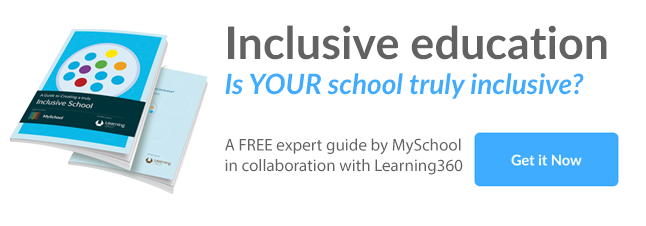
As education professionals, we may have our own ideas and opinions on what inclusive education should look like. However, can our educational practices really be inclusive without taking into account the parental perspective?
The Learning 360° Team spoke with parents whose children benefit from the support of a Learning Supporting Educator (LSE) in Malta. We explored their understanding, experiences, and suggestions with regards to inclusion in Maltese schools, as we firmly believe that parental involvement is crucial to attaining true inclusion.
Acceptance and understanding emerged as being central to the parents’ interpretations of inclusion. One parent defined inclusion as “being accepted as you are”, whilst another explained that inclusion is about each child being “included in all activities with their friends”. An inclusive school was defined as a school that welcomes everyone and is “student centred”, with educators who truly understand each child’s needs. Repeatedly, parents highlighted that once their childs’ needs were understood, the school was able to support and include them.
“Schools need to make an effort to be more inclusive and welcoming.”
A number of the parents interviewed shared hurtful experiences of when they felt that they themselves, or their children, were made to feel unwelcome:
“The Head of School made me feel like my son was a hassle or burden for the school. The attitude made me feel like they felt he belonged in a resource centre and wasn’t welcome in the school. I had to change his school because of this.”;
“Because my son couldn't social distance, [during the pandemic] he couldn't attend school for a whole year. No one, not even the LSE, bothered to contact me to see how he is, send any work or anything. He was forgotten.”
All parents agreed that acceptance, tolerance and understanding need to be taught as values to be passed on to all children: “all the children need to be educated on differences''. One parent suggested “interactive and engaging talks with all students from a young age, to promote understanding and kindness… [this] would make the years at school endurable”. Another of the parents shared that their son felt most included when he participated in break time activities, as a result of an ongoing positive attitude from an all-inclusive approach throughout the school.
Flexibility was also considered to be a crucial factor in order for schools to be truly inclusive:
“Inclusion is adapting practices to the abilities and the levels of all the students and not the other way round.”
One parent recalled how a teacher changed the lesson plans to incorporate frequent movement breaks for the whole class, after learning that their son required movement to learn. Another parent pointed out that inclusion doesn’t work when the system, or educators, are inflexible, for example when “the requirements of the curriculum are perceived as not allowing for differentiation to occur within the classroom”. In order to reach true inclusion, the education system needs to “move away from the restricted, examination-based approach, and towards a more flexible model which is able to cater for support and engage all learners”.
When asked what helps to ensure that their children are included, one parent prioritised communication, and explained that the “open, ongoing communication between teacher, heads of school and home was very important” as it meant that everyone was able to understand their son’s needs and work as a team. Similarly, another parent said: “My son’s best year was when the LSE gave me feedback daily. This meant a lot. I was able to understand what he was doing, his progress and how to help reach his goals”. Yet another parent expounded the importance of communication and teamwork between the educators: “When the teacher and LSE worked well together, they were able to make sure my son was included in all activities. This also encouraged the other children to play with him”.
The parents were asked about the changes they wish to see in our local schools. One parent spoke about “a shift in approach and mindset, on part of all educators, to make all aspects of the educational journey available and accessible to all students”. Another pointed out the importance of ongoing training to help educators understand the different needs and how best to support them. Another parent said they wish to see “a total redesign of the local education system” where the focus is no longer on exam grades, but allowing students to reach their full potential without such restrictions.
Learning 360° Foundation is a registered Voluntary Organisation set up by educators who have a shared passion for inclusive practices and meaningful learning. The Foundation offers individualised holistic, educational services including but not limited to: Early Intervention, Skill Building for Primary school learners, Literacy support, and Coaching for study skills, organisation skills and executive functioning skills. L360° provides training and mentoring for students, educators, parents and professionals.
